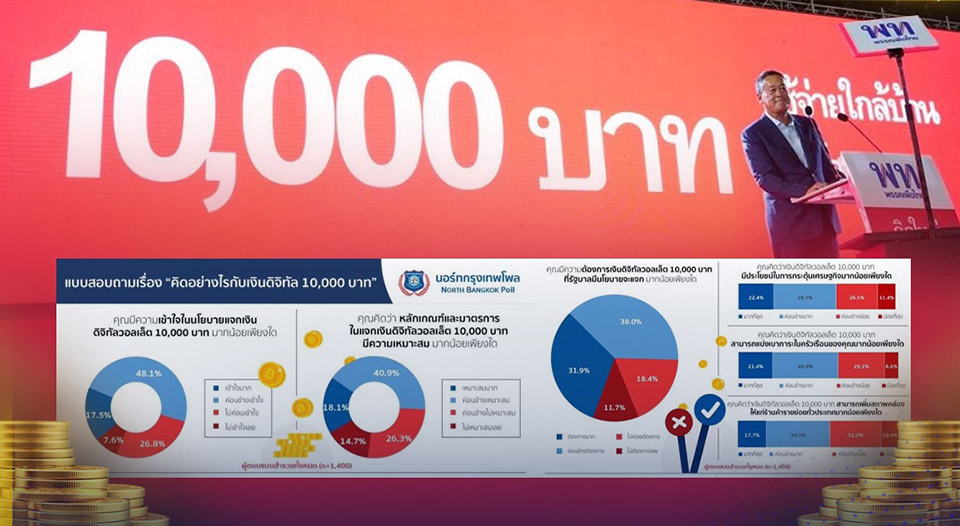
A recent poll conducted by North Bangkok University reveals that nearly 70% of Thais are eager to receive a 10,000-baht digital wallet handout, a government initiative aimed at stimulating the economy. The survey, which gathered responses from 1,400 Thais between April 12 and 14, indicates widespread support for the measure, which is part of the ruling Pheu Thai Party’s economic strategy.
The digital handout, according to the government, will be available to all Thai citizens aged 16 and above who earn less than 70,000 baht per month and have bank deposits under 500,000 baht. It is designed to inject roughly 500 billion baht into the economy, with the expectation of boosting economic growth by 1.2-1.6%. According to the poll results, 38% of respondents highly anticipated the handout, while 31.9% perceived their need as moderate. On the contrary, 18.4% felt they probably did not need the handout, and 11.7% believed they did not need it at all.
Understanding of the scheme varied among participants, with 17% claiming full comprehension and 48% having a moderate understanding. However, 28% admitted they barely understood the details, and 7.6% were completely unaware of how the scheme operates.
Opinions on the suitability of the digital wallet scheme for boosting the economy were mixed. While 18.1% found it highly suitable, 40.9% considered it moderately suitable, and 14.7% felt it was unsuitable for the current economic needs of Thailand.
Respondents perceived the scheme’s expected benefits as economic stimulation (22.4%), easing household financial burdens (21.4%), and supporting small and medium-sized businesses (17.7%). Most respondents (50.4%) planned to spend the handout on daily necessities, while others anticipated spending on general goods (25.7%) and food and beverages (22.4%). (NNT)








